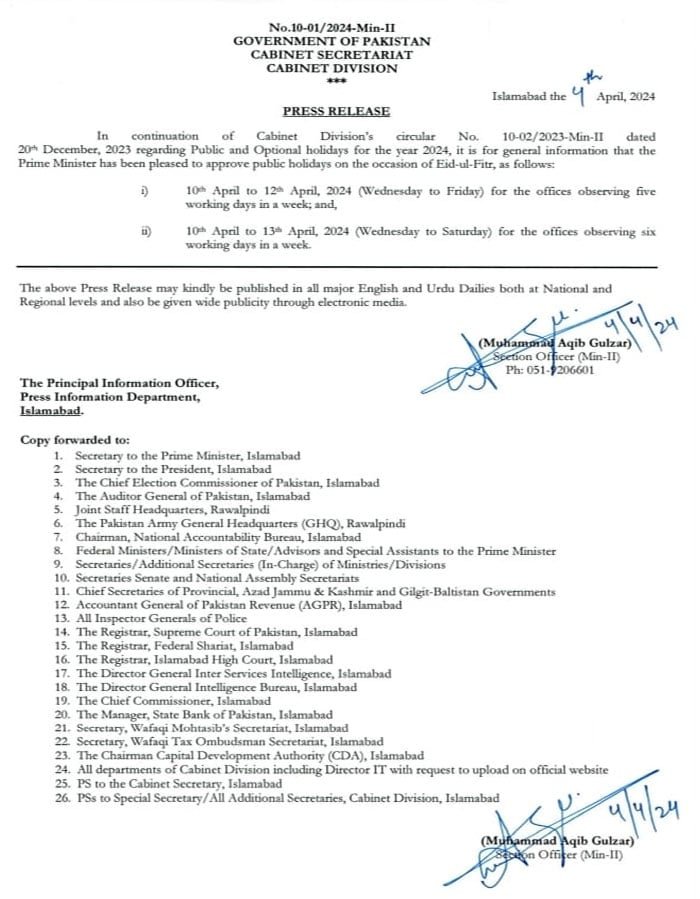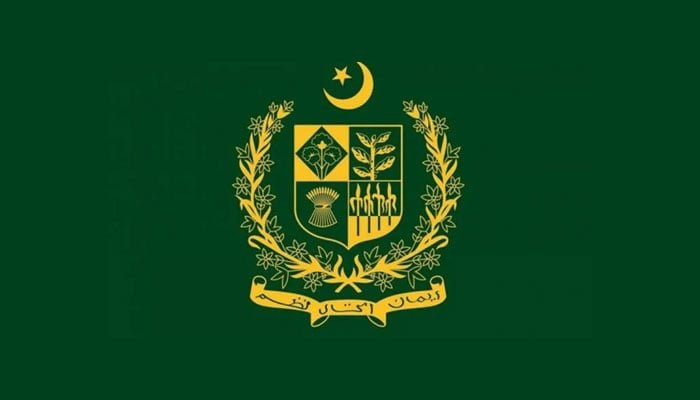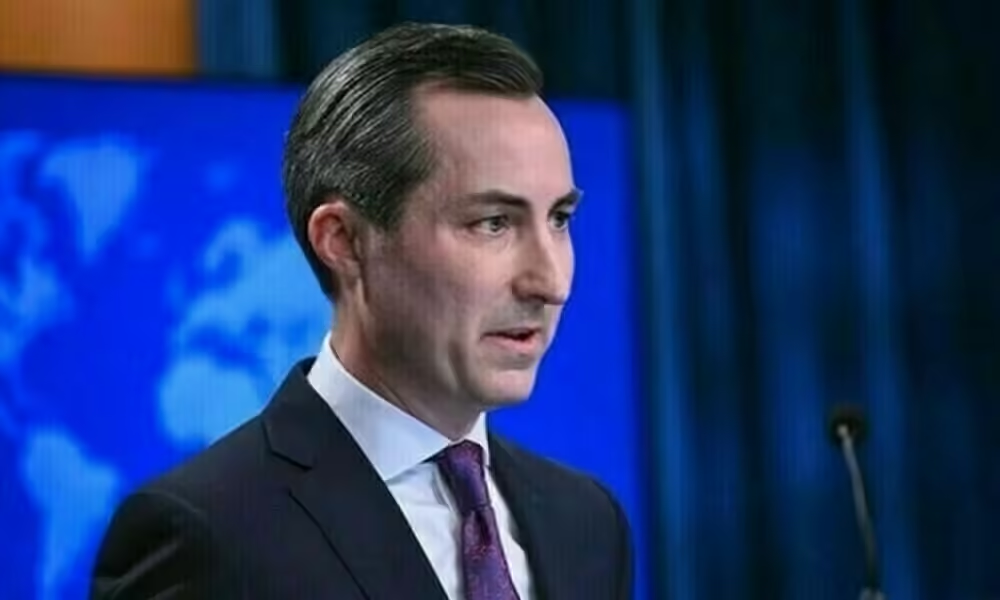The federal government’s announcement of Eid-ul-Fitr holidays from April 10 to April 13 has sparked controversy and criticism from civil servants, as conflicting predictions from astrologers and meteorologists cloud the decision-making process.
Prime Minister Shahbaz Sharif has sanctioned four holidays for Eid-ul-Fitr, as confirmed by the Cabinet Division, which promptly issued a notification following the Prime Minister’s approval.
However, amidst the holiday announcement, concerns have arisen regarding the timing of the holidays, particularly in light of astrological predictions suggesting that Eid-ul-Fitr may occur on April 10. This discrepancy has prompted civil servants to question the rationale behind starting the holidays on April 10 when Eid-ul-Fitr festivities may commence on the same day.
According to the notification issued by the Cabinet Division, offices operating six days a week will observe holidays from April 10 to April 13. Conversely, five-day-a-week offices will have holidays from April 10 to April 12. With April 14 already designated as a Sunday, employees effectively receive a five-day break.
The decision to commence holidays on April 10 has drawn criticism from civil servants who argue that starting the holidays on the day of Eid-ul-Fitr itself may disrupt travel plans for those intending to visit their native areas to celebrate the occasion with their families. This concern is compounded by the uncertainty surrounding the actual date of Eid-ul-Fitr, as per conflicting astrological forecasts.
Civil servants have appealed to the Prime Minister to reconsider the holiday schedule and commence the holidays from April 9 instead. By initiating the holidays a day earlier, employees would have adequate time to travel to their hometowns and celebrate Eid-ul-Fitr with their loved ones, without the risk of missing out due to the conflicting predictions regarding the date of the festival.
Amidst the debate and calls for reconsideration, the federal government faces the challenge of balancing administrative decisions with the sentiments and practical considerations of the populace, particularly during religious festivities like Eid-ul-Fitr. The resolution of this controversy will hinge on the government’s responsiveness to the concerns raised by civil servants and their willingness to adapt the holiday schedule accordingly to accommodate the needs of the populace.




